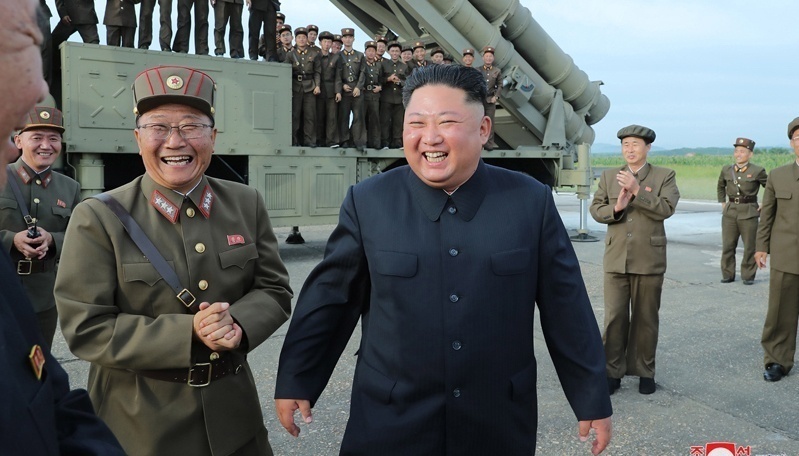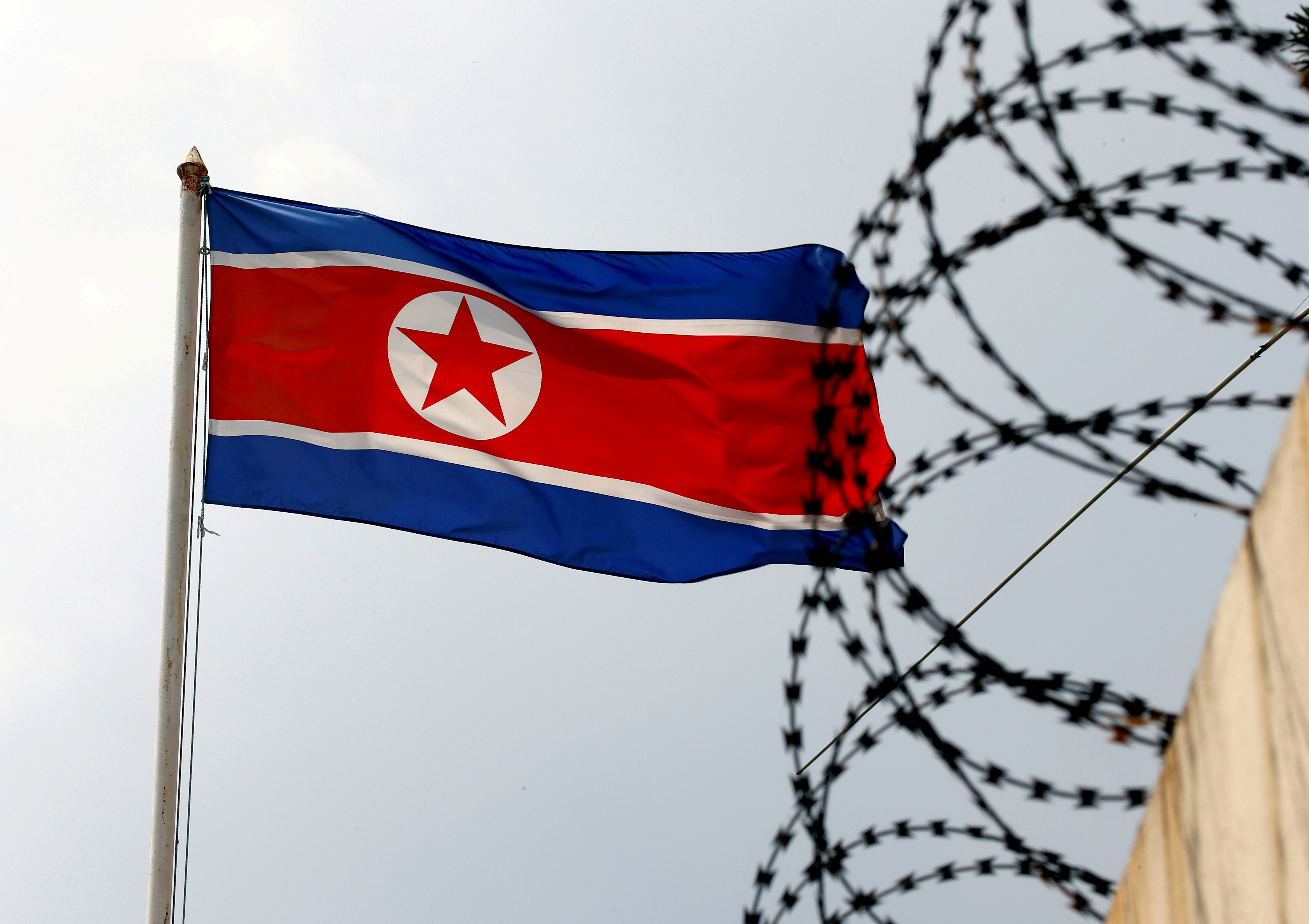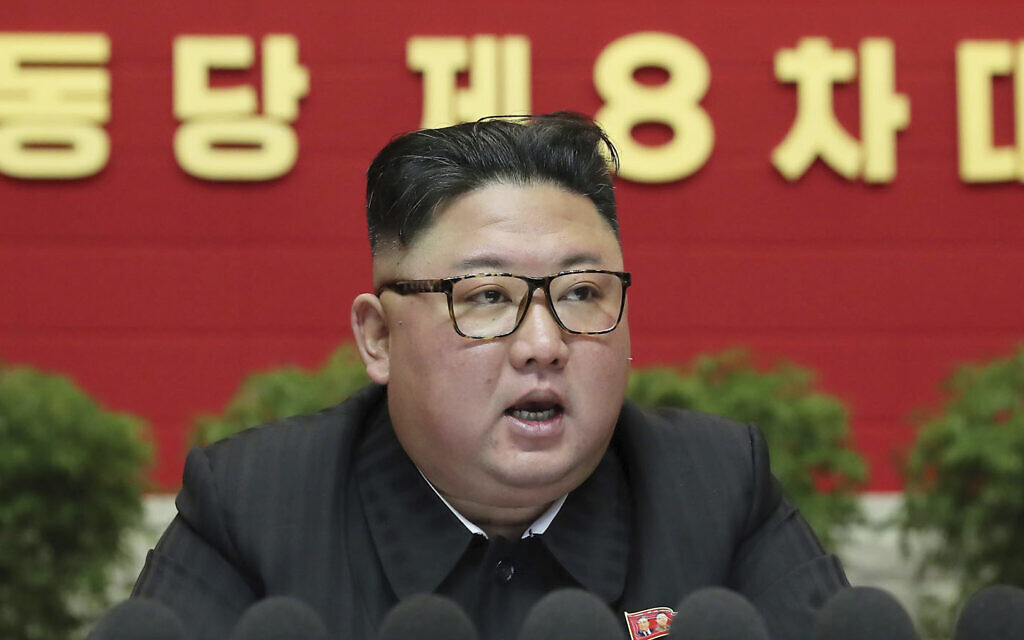Escalating Threat: North Korea Advances Nuclear Arsenal While Sidestepping Sanctions, Reveals UN Report

Escalating Threat: North Korea Advances Nuclear Arsenal While Sidestepping Sanctions, Reveals UN Report
In a concerning revelation, a recent report from the United Nations (UN) has unveiled North Korea‘s ongoing efforts to bolster its nuclear capabilities, all the while evading international sanctions. The report paints a disconcerting picture of a nation determined to advance its nuclear arsenal, defying diplomatic pressure and leveraging covert tactics to achieve its goals.
According to the findings presented in the report, North Korea’s nuclear ambitions have not waned, and instead, they appear to have intensified. The nation’s systematic efforts to acquire nuclear weapons, in contravention of international agreements, have raised alarm bells among global leaders.
The UN report underscores the persistent challenges faced by the international community in reining in North Korea’s nuclear aspirations. Despite the imposition of strict sanctions aimed at curbing its nuclear program, the nation has ingeniously navigated these obstacles, often using illicit means to obtain the necessary resources and technology. This has been a significant point of contention, as the UN’s sanctions were designed to hinder North Korea’s access to the tools required for its nuclear pursuits.

One of the report’s most disquieting revelations is the sophisticated network of front companies that North Korea has employed to circumvent sanctions. These covert entities have facilitated the transfer of prohibited goods, including materials vital for the development of nuclear weapons. This cat-and-mouse game has not only exposed the vulnerabilities of the sanctions regime but has also strained diplomatic relationships as countries grapple with how to effectively respond.
Experts warn that North Korea’s brazen pursuit of nuclear weapons poses a grave threat to regional and global stability. The nation’s continued development of nuclear capabilities heightens the risk of nuclear proliferation, potentially setting off a dangerous chain reaction in an already volatile geopolitical landscape.

The report shines a light on the need for enhanced collaboration among nations to counter North Korea’s relentless pursuit of nuclear arms. Diplomatic efforts to denuclearize the Korean Peninsula have proven to be an uphill battle, with North Korea often leveraging its nuclear program as a bargaining chip in negotiations. The international community faces the challenge of finding common ground that addresses North Korea’s security concerns while ensuring that its nuclear ambitions are curtailed.
In light of these revelations, it becomes imperative for the global community to recalibrate its approach towards North Korea. The report’s findings should serve as a wake-up call for renewed diplomatic endeavors that are backed by robust mechanisms to enforce sanctions. Additionally, bolstering intelligence-sharing and surveillance efforts is crucial to detect and prevent illicit activities that fuel North Korea’s nuclear program.
The report’s release also rekindles the debate on the efficacy of sanctions as a deterrent against rogue nations pursuing nuclear weapons. Critics argue that while sanctions can impose economic hardships, they might not be sufficient to dissuade regimes deeply committed to their nuclear goals. As such, discussions surrounding the adoption of alternative strategies, such as dialogue and engagement, gain renewed prominence.
Furthermore, the report underscores the need for a cohesive stance from the international community. Inconsistencies in the implementation of sanctions by different nations have inadvertently provided North Korea with opportunities to exploit gaps in the system. A unified front against North Korea’s nuclear pursuits is essential to curtail its ability to evade restrictions.

Amidst growing concerns, the UN report casts a spotlight on the broader implications of North Korea’s nuclear ambitions. The possibility of nuclear proliferation, where other nations might feel compelled to develop their own nuclear arsenals in response, looms as a potential consequence. This would unravel decades of non-proliferation efforts and heighten the risk of catastrophic conflicts with far-reaching consequences. The international community faces a delicate balancing act of dissuading North Korea’s nuclear program while preventing a domino effect that could destabilize global security.
The report also underscores the challenge of striking a balance between pressure and diplomacy. While sanctions have been a cornerstone of the international response, they alone might not lead to a sustainable solution. Engaging North Korea in meaningful dialogue is essential, albeit complex, in addressing the underlying security concerns that drive its nuclear pursuits. Crafting an approach that combines both deterrence and diplomacy is imperative, requiring a nuanced understanding of North Korea’s motivations and a willingness to explore avenues for conflict resolution.
The report’s findings serve as a reminder of the evolving nature of security threats in the 21st century. The conventional notion of security has expanded beyond traditional military concerns to encompass cyber warfare, asymmetric threats, and the proliferation of weapons of mass destruction. As North Korea continues to push the boundaries of international norms, it prompts a reevaluation of global security frameworks. Strengthening international cooperation and adapting strategies to address these evolving challenges is paramount to maintaining peace and stability on a global scale.
In conclusion, the UN report’s revelations regarding North Korea’s nuclear ambitions and sanctions evasion paint a complex and disconcerting picture. The report calls for a multifaceted response that integrates diplomacy, deterrence, and international cooperation. As the global community grapples with the intricacies of this issue, it is clear that a sustainable solution demands innovative approaches that go beyond traditional strategies. The world’s collective response will shape not only the future of the Korean Peninsula but also the broader landscape of international security in the years to come.




